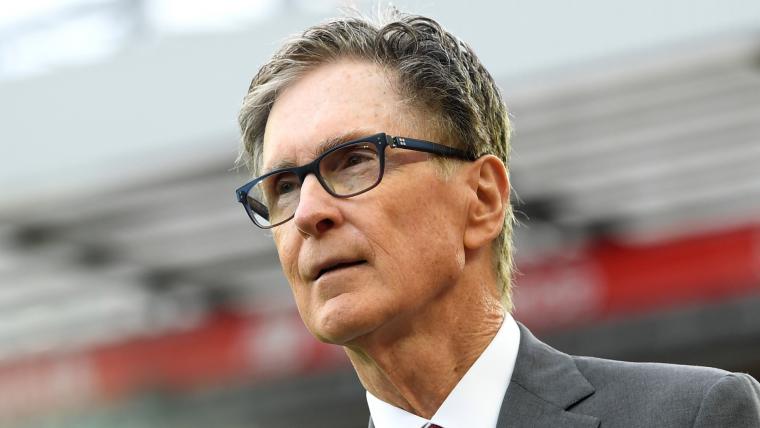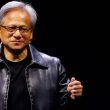John W. Henry, a name synonymous with success in both Major League Baseball and European football, has crafted a legacy of winning through his ownership of the Boston Red Sox and Liverpool FC. Under his stewardship, both teams have experienced remarkable transformations, securing numerous titles and reestablishing themselves as powerhouses in their respective sports. This article delves into Henry’s journey, his management philosophy, and the strategic decisions that led to his remarkable success.
Early Life and Business Ventures

John Henry was born on September 13, 1949, in Quincy, Illinois. Raised in a farming family, he developed an early interest in the stock market and commodities trading. His business acumen led him to establish John W. Henry & Company, an investment management firm specializing in commodities trading. The firm’s success provided Henry with the financial resources to invest in sports franchises.
Acquiring the Boston Red Sox
Henry’s foray into sports ownership began with the Boston Red Sox in 2002. The acquisition was a part of a consortium, New England Sports Ventures (later renamed Fenway Sports Group), which included Tom Werner and the New York Times Company. At the time, the Red Sox were experiencing an 86-year championship drought, known as the “Curse of the Bambino.”
Revitalizing the Red Sox
Henry’s approach to revitalizing the Red Sox involved several key strategies:
- Investing in Talent: One of Henry’s first moves was to bolster the team’s roster with top talent. This included the signing of high-profile players like David Ortiz and Curt Schilling, who played pivotal roles in the team’s success.
- Modernizing Fenway Park: Understanding the significance of Fenway Park to the fans, Henry invested in modernizing the stadium while preserving its historic charm. Enhancements included improved seating, better facilities, and upgraded training amenities.
- Embracing Analytics: Henry was an early adopter of Sabermetrics, a statistical analysis approach to baseball popularized by the book and film “Moneyball.” This data-driven approach informed many of the team’s strategic decisions, from player acquisitions to on-field tactics.
These strategies culminated in breaking the championship drought with a World Series win in 2004, followed by additional titles in 2007, 2013, and 2018.
Acquiring Liverpool FC
In 2010, Henry and Fenway Sports Group turned their attention to European football, acquiring Liverpool FC, one of the most storied clubs in the English Premier League. At the time, Liverpool was struggling both financially and on the pitch, having not won a league title since 1990.
Transforming Liverpool FC
Henry’s transformation of Liverpool FC mirrored his approach with the Red Sox:
- Investing in Talent: Significant investment in the squad was a priority, leading to the acquisition of key players such as Mohamed Salah, Virgil van Dijk, and Alisson Becker.
- Modernizing Anfield: Similar to Fenway Park, Henry recognized the importance of Anfield to Liverpool’s identity. He invested in expanding and modernizing the stadium to enhance the matchday experience.
- Embracing Analytics: Henry applied data analytics to football, partnering with experts to implement a data-driven approach to player recruitment and match strategy.
These efforts paid off spectacularly, with Liverpool winning the UEFA Champions League in 2019 and securing their first Premier League title in 2020.
Analysis of Henry’s Success
| Aspect | Boston Red Sox | Liverpool FC |
|---|---|---|
| Initial Challenges | 86-year championship drought | Financial struggles and no league title since 1990 |
| Key Investments | Signing of David Ortiz, Curt Schilling | Signing of Mohamed Salah, Virgil van Dijk |
| Stadium Modernization | Upgraded Fenway Park | Expanded and modernized Anfield |
| Analytical Approach | Early adoption of Sabermetrics | Data-driven player recruitment and strategy |
| Major Achievements | World Series titles in 2004, 2007, 2013, 2018 | UEFA Champions League 2019, Premier League 2020 |
| Fan Engagement | Preserved historic charm of Fenway Park | Enhanced matchday experience at Anfield |
| Long-term Vision | Sustainable success and community investment | Global brand expansion and youth development |
Comparative Analysis: Red Sox vs. Liverpool FC
| Criteria | Red Sox | Liverpool FC |
|---|---|---|
| League | Major League Baseball (MLB) | English Premier League (EPL) |
| Initial Purchase | 2002 | 2010 |
| Historic Milestone | Ending the “Curse of the Bambino” | Winning the first Premier League title |
| Revenue Growth | Significant increase through success and stadium upgrades | Substantial growth through global marketing and success |
| Fan Base | Strong regional support, expanded nationally | Global fan base expansion |
| Management Style | Emphasis on analytics and traditional values | Blend of analytics and modern football strategy |
| Community Impact | Local community investment in Boston | Extensive global outreach and local initiatives in Liverpool |
Strategic Vision and Legacy
Henry’s strategic vision for both the Red Sox and Liverpool FC emphasizes long-term success and sustainability. He has demonstrated a keen understanding of the importance of investing in talent, infrastructure, and analytics to drive performance. Moreover, his commitment to preserving the historical and cultural significance of the teams he owns has endeared him to fans.
In Boston, Henry’s legacy is defined by breaking the championship drought and establishing the Red Sox as perennial contenders. His investments have not only brought titles but also revitalized the fan experience and the surrounding community.
In Liverpool, Henry’s tenure has transformed a struggling giant into a dominant force in European football. The Premier League title and Champions League victory are testaments to his effective management and strategic investments.
Conclusion
John Henry’s journey from a commodities trader to a successful sports owner is a testament to his business acumen, strategic vision, and commitment to excellence. His ability to replicate success across different sports and continents highlights a unique and effective management philosophy. By focusing on talent, infrastructure, and analytics, Henry has built winning teams that have captured the hearts of fans and established lasting legacies in Boston and Liverpool. As he continues to lead both franchises, his influence on the world of sports remains profound and far-reaching.












